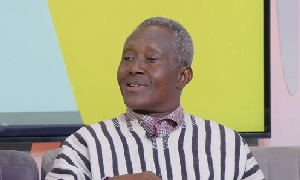Ghana is now 60 and attained its own retirement age on March 6, 2017.
She would have received a letter indicating she was to retire about six months ago and would have gone through Social Security and National Insurance Trust (SSNIT) processes to begin the working out of Ghana's Pension.
We are by this assuming that Ghana@60 worked for the Civil Service or Public Service or for a dutifully respectful private company that paid its employees contributions.
If Ghana@60 was self-employed and did not make contributions for pension then it will be assumed she has saved enough to look after herself or still has a profitable business that will continue to look after her.
Anecdotal evidence points to the fact that many persons who have served their country diligently for between 35 and 40 years and therefore eligible for full pension have obtained sums of money that cannot look after them for more than a week. For some others, it can only serve them for a few days.
All that period however, they diligently paid into Social Security and National Insurance Trust their contributions or it was the responsibility of their employer in most instances the Ghana government to do that. How faithfully that was done will forever be one of the internal wranglings between SSNIT and Government but that is not the basis of this article.
One is even assuming that some way somehow, Ghana@60 managed to acquire land and struggled over the better part of 20 years to put up a three- bedroom house still not fully completed to taste but habitable. The struggle had not only been in looking for money but also dealing with itinerant artisans who inflate prices at will and buy cheaper products but at the same prices as good and durable materials. If Ghana@60 was still in rentable accommodation then the situation will be worse.
The amount of money paid to pensioners is so pathetic. Anywhere else the Government who decides on how much to pay workers, the salaries, on which pensions are calculated will take responsibility and make an effort to address the poverty among pensioners. Yet through a liberal, free market driven economy, Government has taken the decision, not to influence prices of goods and services and leave pensioners to be hanged out dry. A double whammy against the Ghanaian pensioner.
There has been no study assessing how much it costs for any Ghanaian adult to live in Ghana but a back of the envelope calculation for a single adult will require GH¢20.00 per day just for basic upkeep, food and water only. It does not include rent, clothing, paying for utilities, cost of healthcare and even the most basic social activity.
How is it that the Tripartite Committee of Government, Employers and Workers represented by the Trades Union Congress can agree on the minimum daily wage of GH¢8.00 equivalent to GH¢1.00 per hour for the eight-hour day. A Ghanaian works under the blazing hot sun for an hour and can only buy a small ball of kenkey with the earned wage. What happened to a living wage? Ghanaian workers are made to suffer throughout their lives and yet this sacrifice is not universal. Others have made it their prerogative to feed fat on the national cake and get away with it.
The National Service Scheme scam is all but forgotten. The national cake or pie which represents the Ghanaian economy is not being grown with any degree of seriousness to ensure that everyone gets enough to keep body and soul together.
Life after pension
Many Ghanaian pensioners do not survive more than five years post-retirement. Many are dead from poverty and misery and this includes middle class persons, yet elsewhere pensioners have become the new group to be wooed.
Most of them through flexible home mortgages are able to acquire their homes early in their careers and finish paying for the house before they are 55 or 60 years old. By the time they retire they would have finished educating their children who are ready to leave the house to start their own lives.
The parents downsize their home from a three or four-bedroom to a two-bedroom house when their children fly the nest and invest the remainder of the equity from which they can get another income in addition to their work and state pensions. They have spare cash and many live a content life.
Sadly this cannot be said of the Ghanaian worker. Welcome to mother Ghana on your sixtieth birthday. How long you will survive depends on what new strategies are put in place for your benefit?
Who speaks for the Ghanaian senior citizen? Being invited to a lunch on Independence Day is not enough. Pensioners in Ghana must have a loud single voice to articulate their concerns but most especially each must adopt a hobby which can be translated into a business to earn extra money post-retirement. Many have taken this up to their eternal happiness. Many can also jump into the fray.
Backyard farming or gardening of organically grown vegetables is a good start, rearing chickens for eggs and poultry meat, ducks, turkey and keeping small ruminants of goats and sheep, and free range pigs can create an integrated farm. The goats, sheep, pigs and poultry manure will help to fertilise the soil for the organically grown vegetables.
What is troubling is that lawmakers, parliamentarians in Ghana and the political appointees, do not pay SSNIT contributions and yet are the ones who together with the Board of SSNIT decide on how much pensioners must be paid. SSNIT pays its staff very well but are unable to invest pension funds in such a way as to create an equalisation with the cost of living in Ghana. Why should politicians not contribute to the nation's pension fund? Celebrations of Ghana's diamond jubilee must attempt to answer.
Opinions of Thursday, 15 February 2018
Columnist: Prof. Agyeman Badu Akosa



















